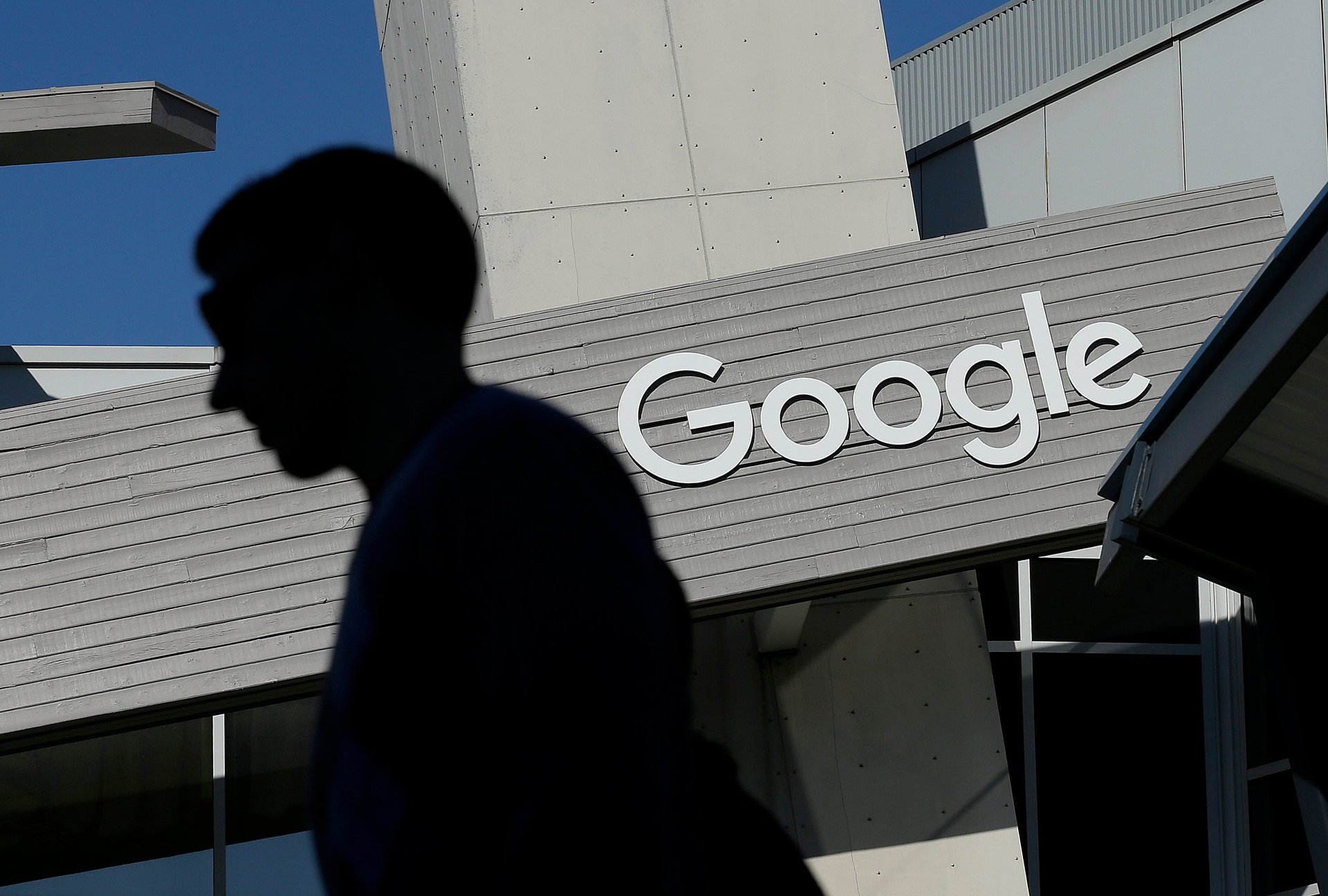Writing 5,000 words about why you quit Google is the ultimate privilege
By just about all accounts, working at Google is a pretty nice gig. Your monthly earnings as a mere intern are higher than most of the American population. There are free meals, three times a day, every day, and a team of top scientists that scrutinizes how everything from the plate size to the length of family leave might make you a healthier, happier employee.


By just about all accounts, working at Google is a pretty nice gig. Your monthly earnings as a mere intern are higher than most of the American population. There are free meals, three times a day, every day, and a team of top scientists that scrutinizes how everything from the plate size to the length of family leave might make you a healthier, happier employee.
But even with all of this, there is still something to complain about. And not just complain about, but do so publicly.
Steve Yegge, a former Google engineer, has written a 5,000 word blog post about why he has quit his job at the company. “I always thought I would die at Google — maybe choking to death on one of their free chocolate brownies,” he writes toward the beginning.
The Bureau of Labor Statistics has projected that by 2020 there will be only 400,000 computer science graduates for 1.4 million computer-science-related job openings. Top computer engineers are as coveted as their employers are rich, and Silicon Valley has developed a reputation for being out of touch with less-privileged reality—so much so that Mark Zuckerberg last year saw it necessary to take a state-by-state tour of America.
Surely not all engineers who work in Silicon Valley fit this reputation. But if you want to understand the potential for casual entitlement at tech companies, I suggest reading Yegge’s epic.
To start with, the existence of the blog post itself is a striking demonstration of privilege. Most people think twice before publicly embarrassing their former employers, for fear that it will ruin their careers or they will face other types of retaliation. Speaking out against sexual harassment or other mistreatment by an employer can be scary.
Yegge seems to be writing because he believes people will find his career move interesting. “Today I just want to tell you about my new gig, because I think you’re going to be amazed,” he writes. “In fact I think I can safely predict that no matter who you are, something in this post is going to amaze you.” (Spoiler alert: It may not.)
His reasons for writing a public explanation of Google’s shortcomings are not a rampant culture of sexual harassment or, say, because they called him an independent contractor as a way to justify stealing his pay. It is not because they forced him to work every weekend without overtime pay, exposed him to unsafe conditions, or any of the other legitimate complaints that plenty of US workers have made against their employers. “The main reason I left Google is that they can no longer innovate,” Yegge writes. “They’ve pretty much lost that ability.”
“In short, Google just isn’t a very inspiring place to work anymore,” he continues. “I love being fired up by my work, but Google had gradually beaten it out of me.”
He seems unaware of the many worker places where workers actually do endure physical abuse, as opposed to a lack of inspiration.
Then he compares joining a new startup to joining a war. “There is no better way to put it,” he says. “I feel like I’ve joined a literal revolutionary war, surrounded by and fighting alongside guerilla troops, and it’s win or die.” It is possible that Yegge does not know anyone who has actually gone to war, or any of the 200,000 troops that the United States currently has deployed overseas, but if he did, he or she probably could have told him that this is not what going to war feels like.
He calls the business venture of his new company “the most important battle in the world today, on the biggest stage.” There are a lot of other battles going on that one might consider the most important: There’s the problem of increasing global inequality. Genocide. Global warming. Yegge describes his new startup as “the Uber of Southeast Asia.”
“I am certainly well aware of my privilege,” Yegge wrote in a LinkedIn message, responding to an inquiry from Quartz at Work. “I agree that it requires a position of privilege to be able to speak up, even after you have already left the company. I understand how fortunate I am, and I do not take it for granted.” He said that Google needed a wake-up call that he could only have delivered to it after leaving, and that the company he is joining “is helping bring hundreds of millions of very poor, completely disenfranchised people out of poverty by providing them with jobs and affordable transportation to their jobs.”
In the blog post, he conceded that Google was one of the best places to work, and his tone throughout is not of someone who means harm—just of someone who didn’t notice the comparisons he was making.
The blog post displays a lack of awareness for less-privileged lives (even as it also discusses how an Uber-like app might help them). And if it’s any signal of the mindset in Silicon Valley, that is a huge problem. Because technology companies are not only making software anymore: They host the public discourse, have the power to influence elections and our emotions, and are spreading into industries with large low-wage workforces. If the people who are creating some of the most powerful infrastructure in the world believe that its biggest battle is over which startup will be the Uber of Southeast Asia, that does not bode well for the rest of us.